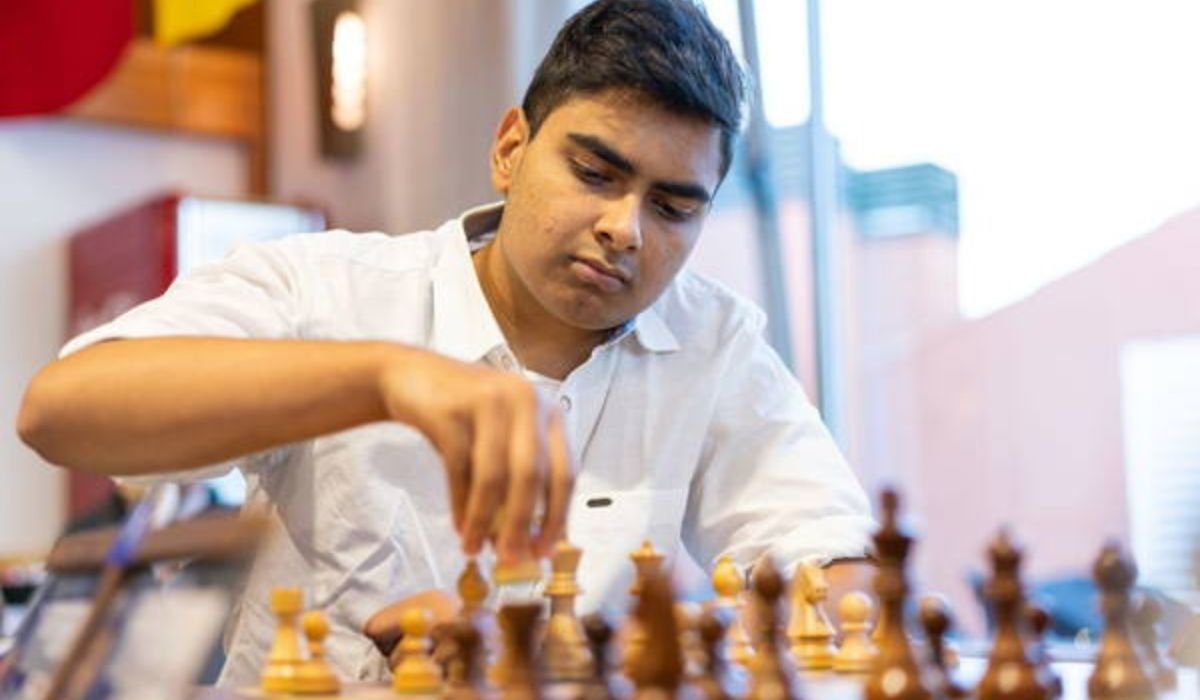At five years old, Abhimanyu Puranik wasn’t dreaming of grandmasters or world titles. The present chess sensation rather dreamt of earning a one-rupee coin from each match.
Growing up in Pune, his childhood chess academy awarded him with a small prize for each match he won, turning the enthusiastic Mumbai-born boy into today’s Grandmaster. The relentless competition and decades of unwavering practice and talent have earned him an International Master title in 2015, Grandmaster status in 2017, and now, perhaps, his most telling victories yet.
However, in a dramatic change of events on 4th September, Puranik found himself across the board from a familiar face — 19-year-old Divya Deshmukh, fresh from her Women’s World Cup triumph in Batumi.
The mentor-protégé pairing made for a rare spectacle in the first round of the Grand Swiss. Divya, the wildcard entrant, carried the aura of a rising star. While Puranik carried both experience and a point to prove. Six hours later, it was the 25-year-old who walked away with a win, his black pieces inching him closer to what he calls his “Zen state”.
A month earlier, Puranik had joked to the Times of India about his Disneyland vacation:
“The way I’m approaching the tournament is that I just had a month-long vacation. There’s a saying in the X-Men movies—to focus properly, you need the mental state between rage and serenity. You’re Zen, but laser-focused. That’s what I aim for.”
That balance of calm and fight has been years in the making. His path to chess maturity wasn’t built on shortcuts but with continuous grinding and a lot of discipline — daily hours at Velankar sir’s class, then Jayant and Chandrashekhar Gokhale’s academy.
He also stated that he has spent long evenings absorbed over Dvoretsky’s Endgame Manual or Kasparov’s My Great Predecessors. When Viswanathan Anand clashed with Vladimir Kramnik in the 2000s, Puranik was a chess lover taking notes.
For him, chess was never “heavy”. As he puts it, it’s like,
“Slowly, I started competing in world school events and other tournaments. There was never really a question of doing something else—it just happened naturally,” he said. Puranik earned the International Master title in 2015 and became a Grandmaster two years later.
Against Divya, his young protégé, Puranik displayed the same perseverance that defined his rise. And yet, even in victory, he found space for generosity.
“I did whatever little I could to help her, and I’m glad. She has evolved so much, with an amazing mindset. Look at her results — national championship, Asian championship, Olympiad gold. She’s already a star, and she’ll be an even bigger one.”
But this moment is also Puranik’s. With every move that changed one-rupee coins are now chasing to script history in that chess fraternity.














